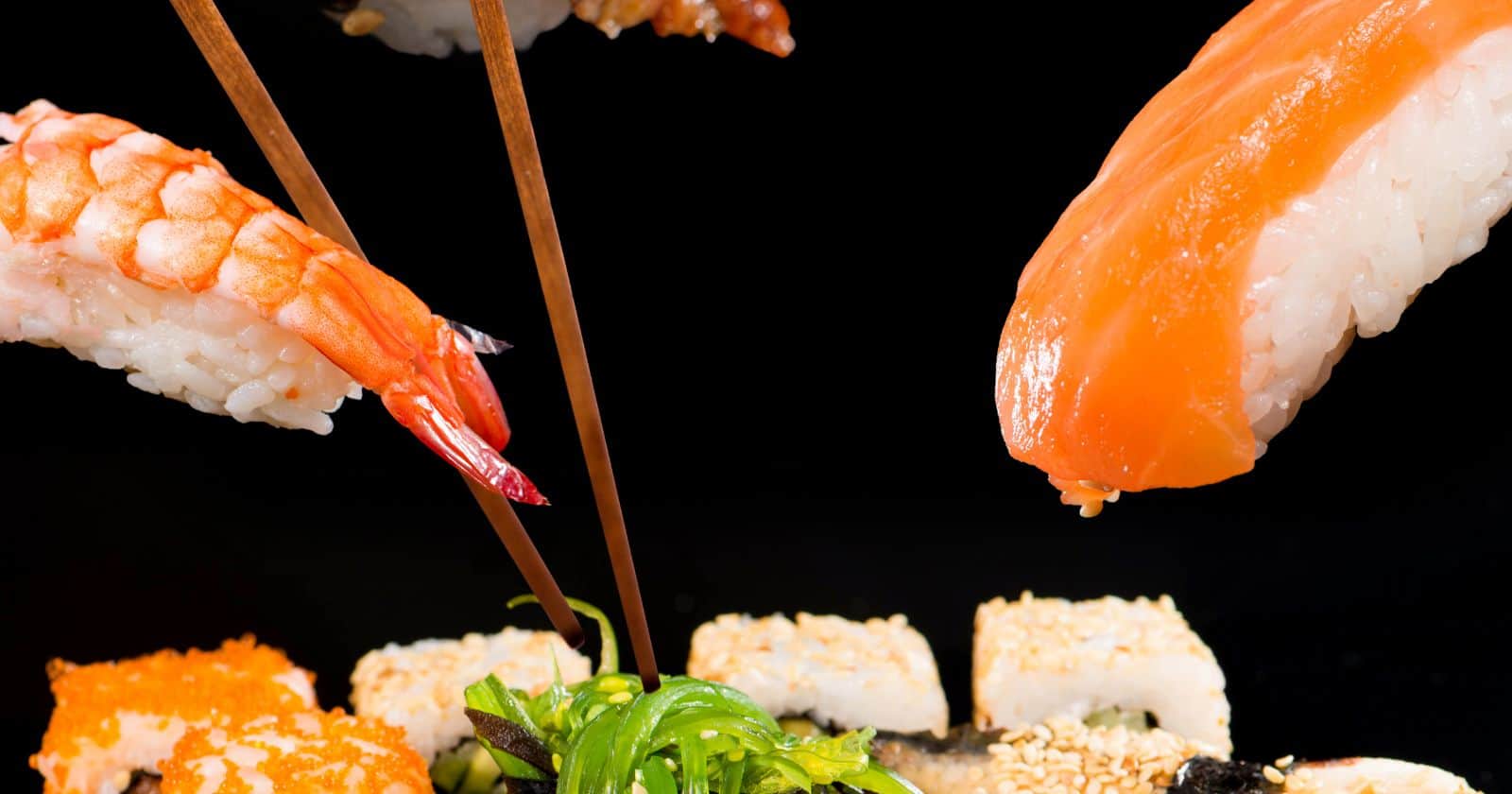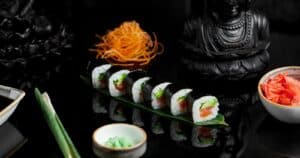Sushi is so much more than just raw fish and rice to the Japanese – it is an iconic symbol of their culture and tradition. With its focus on artistry, precision, and fresh ingredients, sushi encapsulates many of the core values of Japanese culture.
- As an ancient dish dating back centuries, sushi has become ingrained in the fabric of Japanese society. The tradition of sushi chefs training for years to perfect their craft exemplifies the Japanese commitment to mastery and excellence.
- The simple, clean flavors and emphasis on fresh, seasonal ingredients in sushi connect back to the Japanese appreciation of minimalism and nature.
- The global spread of sushi from its humble beginnings in Japan highlights the creativity and innovation of Japanese chefs. At the same time, sushi restaurants remain institutions that preserve and pass down tradition.
Sushi has come to represent the essence of Japanese identity to people across the world. To comprehend sushi is to gain insight into the rich culture of Japan. From its long-standing traditions to its modern innovations, sushi tells a unique story about Japanese history and values.
In this article, we’ll explore the origins of sushi, its evolution and styles, and the philosophies and cultural practices that infuse this iconic Japanese dish. Let’s roll up our sleeves and dive deeper into the world of sushi!
A Symbol of Japanese Identity
Walk the streets of Tokyo or flip through a travel guide, and images of sushi will inevitably appear. Sushi has become shorthand for Japanese culture – a distinctive marker of Japanese identity.
Beyond just a meal, sushi restaurants are treated as cultural institutions. Sushi chefs train for years just to learn the proper techniques of sushi preparation and presentation. They are highly respected in Japanese society for their craft.
So while sushi pleases the palette, it also feeds the Japanese soul and sense of cultural pride.
Reflection of Cultural Values
Part of what makes sushi so revered in Japan is how the qualities of excellence, beauty, simplicity and seasonality align with Japanese cultural values.
The precision and attention to detail required for making sushi reflects the Japanese commitment to mastery and achieving perfection. Sushi chefs must have an incredibly steady hand and knife skills to slice fish and other ingredients flawlessly.
Japanese aesthetics value cleanliness, elegance, and pure, natural flavors. Sushi exemplifies these ideals.
The traditional sushi experience also connects people to Japan’s seasonal rhythms. Fresh fish and seafood that in peak season are used, reflecting what is bountiful at that time of year.
So in philosophy and practice, sushi expresses some of Japan’s deepest-held principles.
History and Tradition
Sushi has a long, storied past in Japan dating back centuries. This history and tradition strengthens sushi’s cultural importance.
The earliest origins of sushi can be traced back to Southeast Asia, where fish was preserved in fermented rice over 2,000 years ago. This technique spread to Japan by the 9th century.
Over the centuries, regional styles of sushi developed using local ingredients. But Edo style sushi crafted in the mid-1800s established most of what we know as sushi today – including nigiri style.
As sushi continues evolving in modern times, tradition remains at the core. Sushi chefs still train under strict apprenticeship for years to master time-honored techniques.
Creativity and Innovation
At the same time, sushi culture has always embraced innovation – yet another reflection of the Japanese spirit.
While tradition is revered, sushi chefs are also celebrated for their creativity. New types of sushi, ingredients, and global fusions keep arising while respecting tradition.
The way sushi has spread worldwide also speaks to Japanese innovation. Sushi chefs adapted to suit local tastes abroad while also exposing global eaters to authentic Japanese style.
So in honoring tradition yet also evolving creatively, sushi expresses both facets of Japanese culture.
Global Reputation
Over the past few decades, sushi has exploded in popularity globally and become synonymous with Japanese cuisine. Sushi restaurants can be found in most major cities worldwide.
This global reach amplifies sushi’s importance as an ambassador of Japanese culture abroad. It has permeated the international consciousness, shaping global perceptions of Japanese identity.
Yet sushi has not lost authenticity, as Japanese techniques and ingredients remain essential to distinguishing true sushi. This global appeal originated from Japan’s own cultural innovations.
In many ways, the global sushi phenomenon says as much about Japanese culture as sushi itself. It shows how Japan has uniquely blended tradition and adaptation to share its essence worldwide.
Sushi as a Reflection of Japan
At its core, sushi fully encapsulates the spirit of Japan by blending tradition with innovation, embodying cultural values, and spreading Japanese identity globally. No wonder it holds such importance.
From its taste to its aesthetics to its philosophy, sushi expresses the essence of Japan in a single bite. It brings people together through shared appreciation of its cultural depth.
So next time you enjoy sushi, take a moment to reflect on the rich story it tells of dedication, precision, naturalness, seasonality and harmony. The qualities that make sushi special provide insight into what makes Japan special as well.





